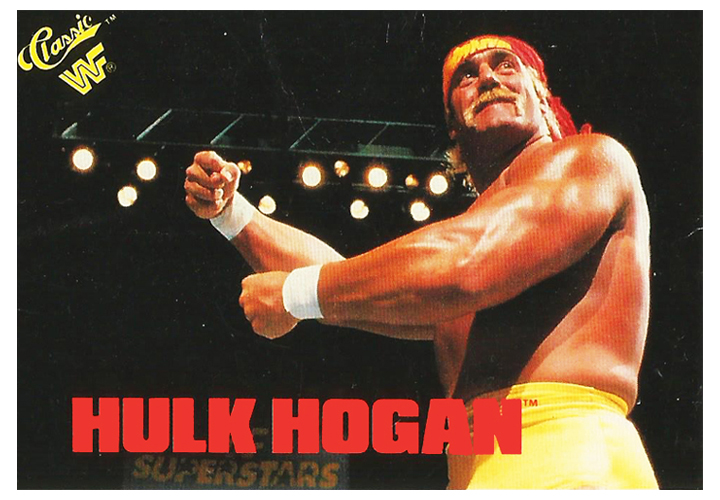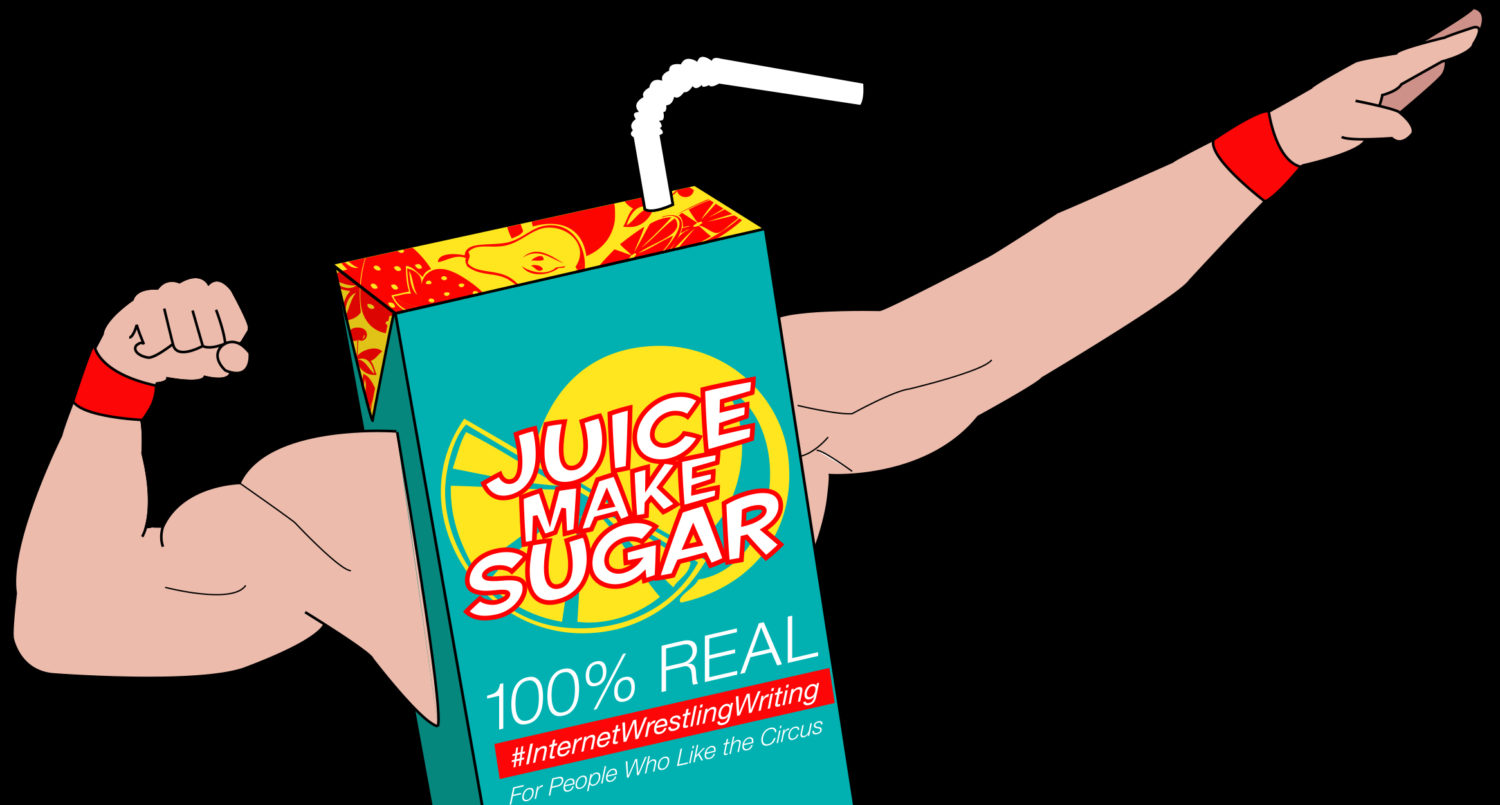
If there’s ever been someone bigger than the WWE, it’s Hulk Hogan. There’s even an argument to be made that, if not for Hulk Hogan, there wouldn’t even be professional wrestling anymore. But, then again, it’s fairly easy to say that there is no professional wrestling anymore and it’s Hogan’s fault that “sports entertainment” has taken its place. Which, is essentially the entirety of the intellectual legacy of Hulk Hogan in a run-on sentence or two.
But the emotional legacy? The one that matters to generation after generation of Hulkamaniac? That’s a lot more complicated.
***
I remember the first time I thought Hulkamania was total bullshit. It was, not surprisingly to anyone whose seen it, WrestleMania IX. While there is a significant portion of the audience who was totally happy, as a Bret Hart fan, finding out that Bret hadn’t just lost the title, but that Hulk Hogan had basically stolen it afterwards filled my heart with sadness and just a wee bit of anger. It was the difference between one of your friends dating an ex and a complete stranger doing the same: while you don’t (and shouldn’t) have anything to say from the girl’s perspective, the idea that a friend would think it was okay to hurt you like that just feels wrong.
What made it worse, of course, was the way that Hogan pretended to be Hart’s friend. While this was obviously done as way to make Hogan seem like less of a monster when he totally bogarted Hart’s title, looking back — and reading about it in Hart’s book — makes it clear that like nearly everything else Hogan did at that point, and for most of his career, was solely designed to make Hogan look like the good guy no matter what. And in a world where good and evil are so clearly defined by the messaging surrounding them, these are the type of things you start to notice when your concept of “good” and “bad” or “evil” begins to develop properly.
Hogan was never “evil” in the WWF, or at least not after leaving the birthplace of Hulkamania — the AWA — but he was never really a good guy for any reason other than Bob Backlund saying he wasn’t going to be hanging out with Classy Freddie Blassie anymore. Nothing other than that, and his color scheme, changed at all.
Still a hotdogging showboat who rake eyes and backs, Hogan’s in-ring style belied his “true” nature, something that storyline after storyline ever so briefly touched on. But it was never canon, it was never “accepted” that Hogan was a bad guy. And while commentators like Jesse Ventura were allowed to at least insinuate that Hogan wasn’t completely above board, this was never used as an indictment of him, mostly being treated like the bitter complaints of the guy who didn’t get the prom date. Nearly every WrestleMania storyline of the first IX — from never giving his best friend, Andre the Giant before WrestleMania III a title shot to totally screwing Sid Justice out of the WWF title in the lead up to WrestleMania VIII — outside of WrestleMania II and VII’s involved Hogan either wronging a friend or coming up against trouble with a former partner because of an inability and unwillingness to not make everything all about him. And up until Bash at the Beach 96, Hogan’s reign as the nicest jerk in the room continued unabated for almost 15 years.
And then, finally, Bobby Heenan asked the question some of us had been asking all along: “Whose side is he on?!”
***
I’ve always thought that Hollywood Hogan, more than any other incarnation of his character, was the true Terry Bollea. Insecure, and obsessed with his own greatness, Hollywood Hogan was the precursor to any number of characters, but the one he most reminds me of is the poor man’s version of what Triple H is doing now. The character, formed not when he dropped the leg on a prone Randy Savage, but with the first words out of his mouth immediately following that, took the idea of the unbeatable superhero character that had brought him fame, fortune and frustratingly stale booking and simply put a black hat (and beard) on it. Hogan was still Hogan, still the eye and back raking bully that pushed his way into the main event of WrestleMania IX, still the self-centered jerk with “jealous eyes” who literally and figuratively helped destroy the relationship between Savage and Elizabeth as the MegaPowers exploded.
However, instead of wanting to use his natural charisma, charm and 24-inch pythons to get people to buy his merchandise, he used it to make sure he stayed on top. The Fingerpoke of Doom is the zenith (or nadir) of this, depending on how you feel about blatantly disregarding the expectations of fans/spitting in their face in an attempt to pop a rating, with Hogan both literally and figuratively working as the puppet master to put himself on the marquee once again.
And he got there, but he had finally pushed everything too far. We could take the stolen titles and the people who got held down in order to keep Hogan on top, both in front of the camera and behind the scenes. But we couldn’t take him so blatantly disrespecting us. In fact, while the Fingerpoke of Doom wasn’t necessarily a function of this, Hogan’s obsession with control — especially creatively — would lead to the downfall of not one but two competitors to the brand that he helped build from the ground up.
Because even when he was only in it for himself, he at least felt compelled to pretend like he earned it. He at least pretended to care what we thought, to care whether or not we loved or hated him — if you’ll remember correctly, he turned against WCW not just because he wanted to be The Man for as long as possible, but because of the way he was treated from the time he first entered the world of professional wrestling after so many years in sports entertainment. With the Fingerpoke of Doom, it became clear to all of us that he was in it to put himself on top of the call list.
After helping to ruin WCW, he stepped on the throat of TNA while riffling through their pockets. Leaving there only after forcing the owner of the company to beg on her hands and knees for him to say, he came back to the WWE to host WrestleMania XXX and help launch the Network. With nary a mention of the life had been living for much of the last 5 years, of the downward spiral his world had entered after he tried to spend too much time too close to the sun, he came back “home” in order to reap the benefits of his considerable work and to hear the crowd pop for him a few more times. And while he’ll likely not make a single person during his time there, he will make a significant number of them richer than they would have been otherwise.
But ultimately, that won’t really matter. Because all coming back has done is made us realize “whose side” he was on all along: his own.

No Comments, Be The First!